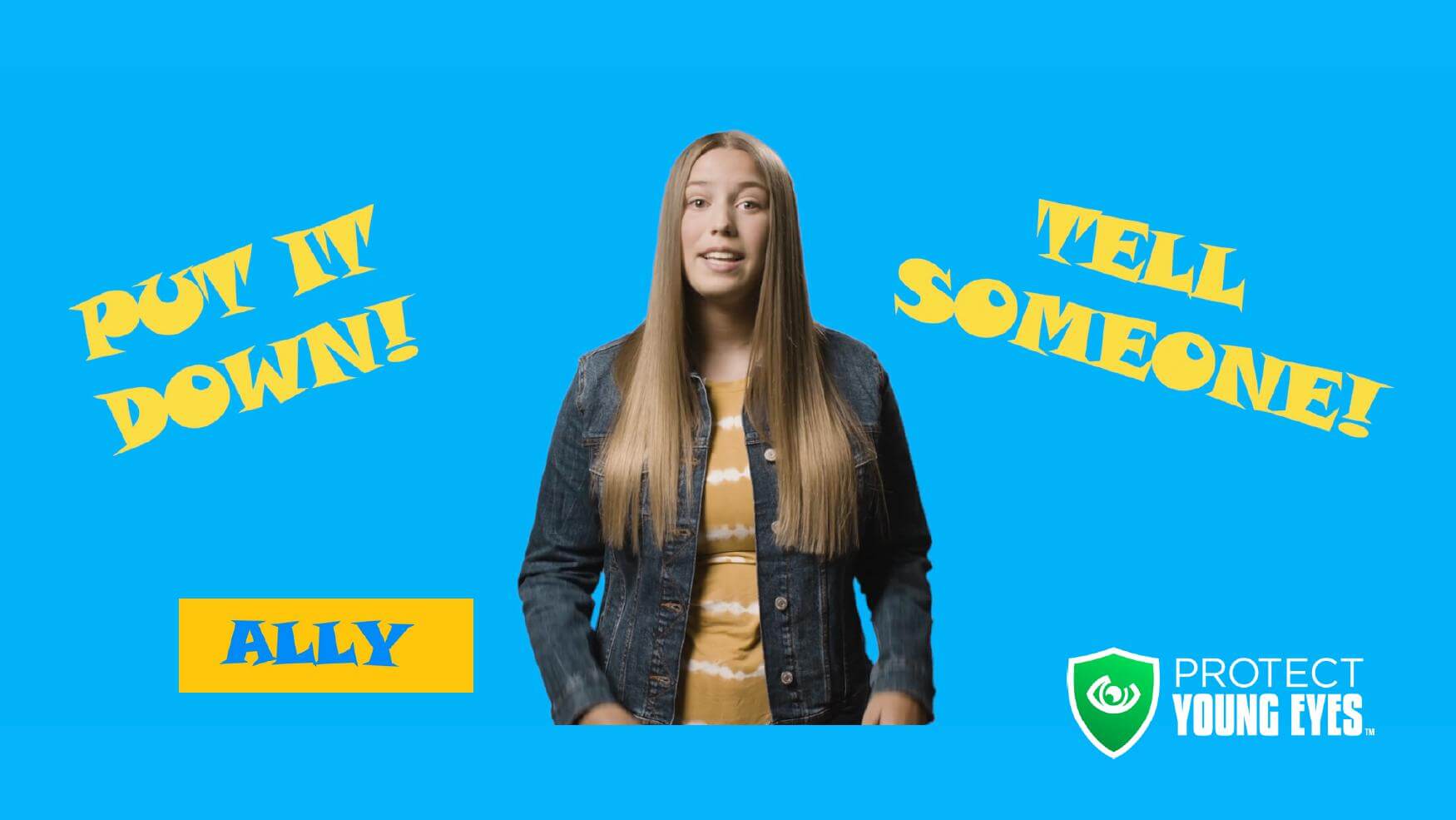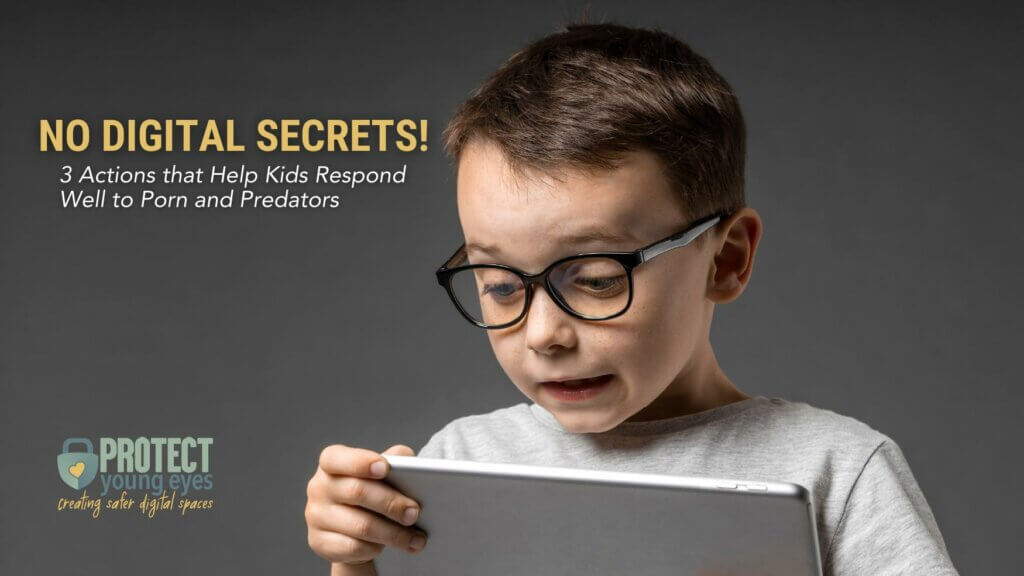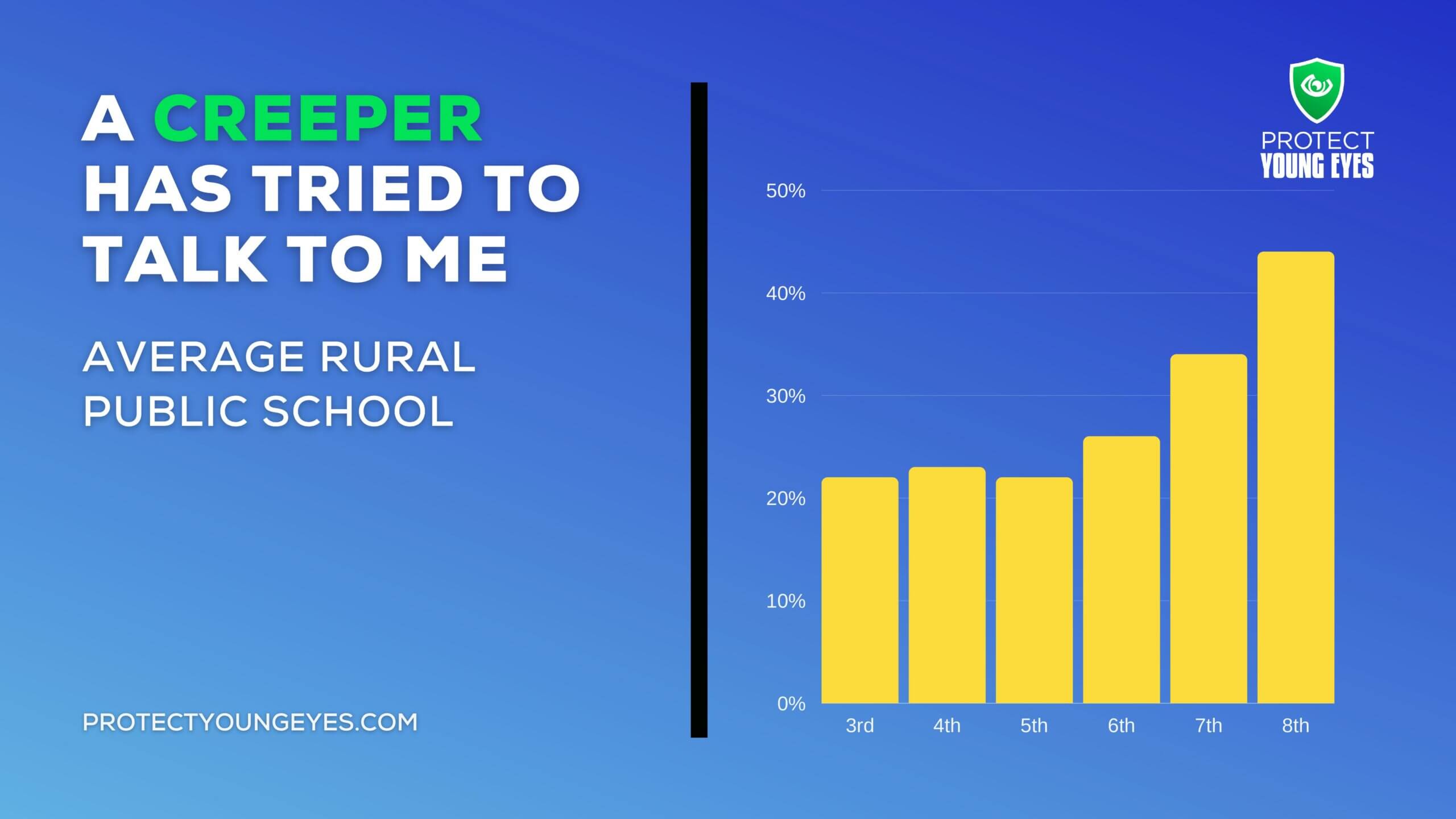Your Kid Will Experience Something Bad Online
If you ask a room of parents to tell you the digital issues that keep them up at night, porn and predators are always toward the top. Most internet safety and child advocates ascribe to the “not if, but when” perspective with these issues. EVERY child who (1) goes to school, (2) rides a bus or other transport with other kids, or (3) is in a home with internet-ready devices needs to know how to handle porn and predators.
According to our own poll of an average rural public school in Michigan (around 716 students), roughly 25% admitted that a “creeper” has tried to talk to them while on a device.
Because of COVID, kids are taking more relational risks online. How do we know this? Because we watch app store activity and random chat apps have been popular during lockdown periods – Omegle. Tiya.
As social beings, isolation can have a significant effect on our well-being. Many of us are longing for some sort of interaction with others that seems genuine. Sadly, more and more online predators are leveraging this reality. “Sad fishing” has come to describe the process of predators looking for kids who seem sad/depressed/lonely based upon their public profiles on a variety of social media platforms.
As it pertains to pornography, how many different statistics have you seen that give you the average age of first exposure? Probably numerous. Sometimes they say age 8, sometimes age 9.4, sometimes “kids as young as 4….” I’m not discounting the need for research, but if someone tells you that it’s age 6 or age 9, let’s just agree that it’s too early. And that we truly need to prepare our young people for an algorithm- and engagement-driven digital world that is disproportionately hostile toward young people with young brains.
So, how do we prepare your kids to respond well to porn and creepers? Here are three actions for awesome parents!
#1 – Give Them a Process
Our elementary school presentations spend a majority of their time speaking openly and with a big smile about what kids see online and how to respond. We want the conversations to be really positive and encouraging. Here’s a sample script from our speaking team:
Whenever you see something on phone or tablet or Kindle or Chromebook or YouTube or Roblox – and it makes you feel uncomfortable, like that little feeling in your tummy that something just isn’t right, I want you to do 2 things. Can you do that?
“Put it down! Tell someone!”
Here’s Ally in our Protect App videos, teaching kids in grades K-2 how to “Put it Down!” and “Tell Someone!”

OH – and don’t forget this part. No digital secrets! Please tell young people:
“If anyone ever asks you to keep a digital secret, they might be trying to hurt you. Please tell an adult. No matter what.”
No Digital Secrets!
Because whether you’re age 4, 14, or 40, there’s no such thing as a good digital secret. Right?
#2 – Give Them Practice
(Reminiscing of the days when we did more in-person presentations!) You should hear the volume in gymnasiums when there are 100 kids in grades K-2 slapping their hands together, yelling, “Put it Down!” and then cupping their hands around their mouth saying, “Tell Someone!”
It’s so much fun! And, our team has kids do this multiple times. For “bad pictures” or when someone they don’t know tries to talk to them.
In our Tricky Person blog post, we include a long list of practice statements that kids might look for in order to recognize a Tricky Person (someone they don’t know who tries to talk to them):
- Tricky people are people who I don’t know who are very nice to me. Some of the most dangerous people on the internet are also some of the nicest people on the internet. “You’re very pretty. Has anyone ever told you that before?”
- Tricky people are people who I don’t know who ask me questions. They want to know things about me so that I will trust them. “What things do you like? Do your parents ever make you mad?”
- Tricky people might invite me to use a different, more secret platform. “What’s your Snap name? Can we talk more over there?”
- Tricky people are people who might seem a little pushy when I try to stop talking to them. “Hey, why won’t you respond? Don’t be mean to me like this.”
- And 4 more! Read the rest of the Tricky Person blog post here!
Or when it comes to SEEING something they shouldn’t see, actually give them an iPad with the YouTube app open, and say:
Ok, I want you to pretend that you just saw something scary on the iPad. I’m going to stand over in the kitchen. What would you do?
I know it sounds basic and almost silly, but I promise the practice matters!
#3 – Give Them Permission
One of the most important things you might say to your child is this:
When you see something on the iPad, maybe on Roblox or YouTube that you know you shouldn’t see, don’t worry! It happens to everyone. Not just you. It happens to me, too! Just Put it Down and Tell Someone! Awesome!
It’s the “it happens to everyone” phrase that is so critical! You might even tell them that you’d be so proud when they tell you! Ice cream for everyone! The goal of this “Give Them Permission” step is to CRUSH SHAME. Big time. Maybe like this:
Because when you see something that feels bad or scary, you’re going to want to keep it a secret. Like maybe when you’re playing Roblox? Watching a YouTube video? There’s this little mean voice in your mind that might say, “Dad’s going to get mad! You can’t tell him!” And, you know what? That’s a lie! Remember? No digital secrets! I’ll never be mad if you tell me. In fact, I’ll give you a high five and we’ll get ice cream!
Do your kids – ALL OF THEM – know beyond any doubt that no matter what happens online, that they can always land softly with you? It can’t be said too often!
About Protect Young Eyes
Founded in 2015, Protect Young Eyes is a leading voice showing families, schools, and churches how to create safer, “no digital secret!” spaces for young people. We do this by creating content that is reliable, practical, and easy to use. Our team of presenters performs hundreds of talks annually and 500+ mini-lessons in the Protect App help busy, amazing families be digital ready! Available for Apple or Google.



